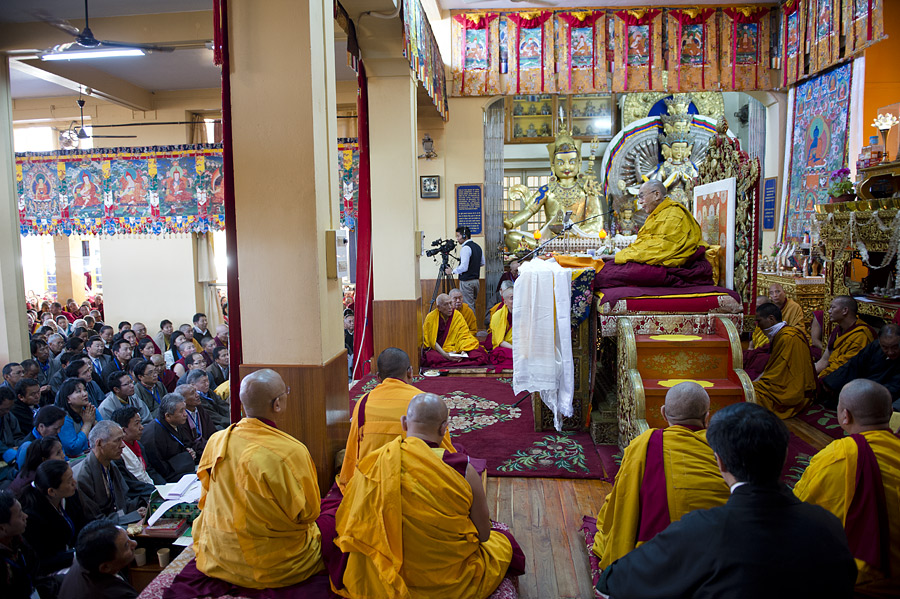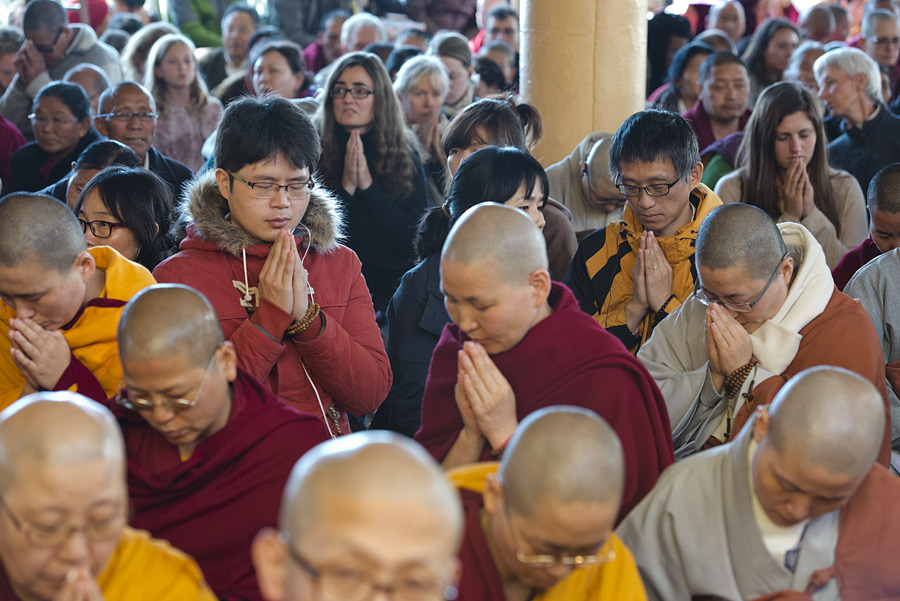On Monday March 31 thousands of people received the empowerment of the Medicine Buddha from His Holiness the Dalai Lama at Theckchen Choeling Tsuglagkhang, the main Tibetan temple in McLeod Ganj. The empowerment, which was given at the request of the Central Council of Tibetan Medicine, was attended by doctors, students, monks, nuns, local Tibetans, Indians, and foreigners alike.
Before beginning the empowerment, His Holiness gave an introductory teaching on Tibetan Buddhism. He remarked on the human tendency to desire and chase after what are actually the causes of suffering. His Holiness suggested that peace of mind is more important than material development, as peace of mind yields physical well being. Material development, however, is not lasting, as people continue to feel stressed and lonely despite having all the necessities of life.
Calling himself a “human being first, and a Tibetan and Buddhist only second,” His Holiness also spoke to promote secular ethics. Noting the need for harmony and coexistence, he encouraged the audience to recognise, and to develop, the qualities that all religious traditions have in common-love and compassion. He continued by saying that theistic and non-theistic religions alike recognise love and compassion as the root of happiness, as they are necessary in facilitating peace and harmony.
Additionally, His Holiness advised the audience to be careful and sincere in their actions, and warned against hypocrisy and corruption. He remarked on the importance of pure intention, and stressed the fact that mantras alone will not remove impediments and cure all that ails.
After the teaching, His Holiness bestowed the empowerment of the Medicine Buddha and led the audience in reciting the mantra of the Medicine Buddha.
In concluding the empowerment, His Holiness spoke of, and prayed for, Bawa Phuntsog Wangyal who died the previous day. Calling him a hero, His Holiness spoke of their personal relationship which dated back to 1951. His Holiness invited everyone present to say a round of Manis together for Wangyal and for others who have struggled and died for the Tibetan cause, including those who have self-immolated, and also for the sick and those under difficult circumstances.






 Print
Print Email
Email